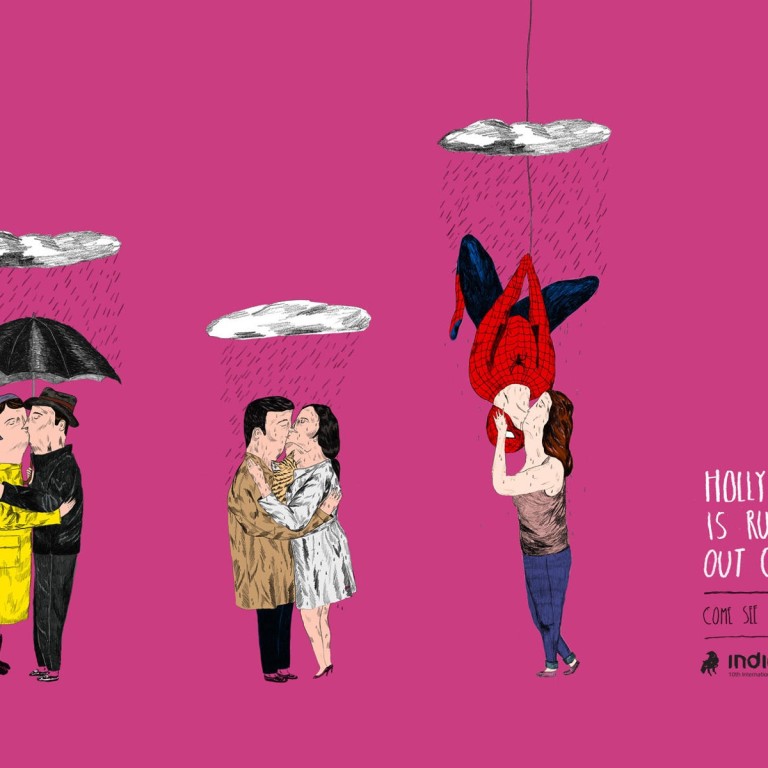
Film: Postcard from Lisbon
"Hollywood is running out of ideas. Come to IndieLisboa to see something new!"
"Hollywood is running out of ideas. Come to IndieLisboa to see something new!"
The provocative "manifesto" for the 10th anniversary of Lisbon's International Independent Film Festival - which ends today - is a witty, eye-catching way of driving home what "indie" is all about: a cutting-edge, unconventional, creative and surprise-filled festival that has become a beacon for independent cinema.
Co-founder and director Nuno Sena has good reason to be proud of this year's programme. "When I started this project with my colleagues Miguel Valverde and Rui Pereira, we never thought it could go so far," he says. "If the festival is still alive today, despite the economic crisis, it is because we have given the Portuguese audience a kind of cinema that has never reached local theatres before."
Looking back over the festival's history, Sena especially treasures the visits of filmmakers such as Brazil's Julio Bressane, Japan's Shinji Aoyama and the mainland's Jia Zhangke. Hong Kong's Johnnie To Kei-fung, with his distinctive and original style, perfectly corresponds with the spirit of IndieLisboa.
"The full retrospectives we dedicated to these masters, previously unknown to the Portuguese public, significantly shaped the identity of the event … Equally influential were young filmmakers such as the Safdie brothers [Ben and Josh], with their successful in 2010, and [French-born] Marie Losier, who deeply impressed with , [her 2011 documentary] on artist Genesis Breyer P-Orridge and his collaborator wife," Sena says.
Independence is the festival's core idea ... we believe it is important to think and work without restrictions of any kind
Three concepts summarise IndieLisboa's vision, he says. "Independence is the festival's core idea, firstly because we believe it is important to think and work without restrictions of any kind, and secondly because we support independent cinema.
"Originality is also essential … we always wanted to do something nobody had done in Portugal before: discover new films, present emerging talents, and find a fresh, unconventional way to show them to our public. Finally, friendship is for us the ability to create intimate, genuine, open communication between audience and filmmakers, making them all feel a part of the big IndieLisboa family," he says.
Showcasing an eclectic blend of the year's finest films and boasting world premieres in the Portuguese selection, IndieLisboa may be small but it is one of Europe's best curated festivals. For its 10th anniversary the event has laid on its best national and international selections.
The festival has always placed a spotlight on Portuguese cinema, and another IndieLisboa slogan, "Portuguese cinema is alive and kicking!", makes the point that national cinema is thriving, and many films are being produced outside the public funding system, using alternative resources. This year's national selection, with 10 feature films and 38 shorts, is one of the strongest too. In addition, there's a newly created Portuguese film section named Brand New.
The International Competition section showcases emerging talents such as Argentinian filmmaker Jazmìn Lopez, who is presenting her debut film , a subtly disturbing drama involving a group of teenagers, and Israeli Tom Shoval with , a tale of ordinary madness set in Israel.
Two Portuguese films screening in this section are João Viana's , an idiosyncratic black-and-white work exploring myths and prejudices in the former Portuguese colony of Guinea-Bissau, and João Vladimiro's , a film looking at Portuguese roots in the rural world that is getting its world premiere at IndieLisboa.
In the Observatory section are works by Brillante Mendoza of the Philippines, Austria's Gustav Deutsch, and Americans Harmony Korine and Richard Linklater. Despite their apparent diversity, these films do have things in common. "Drawing up a programme is not just a question of compiling a list of titles, but reflects thematic, stylistic and aesthetic choices," says Sena.
"I like to think of cinema as a game of dice. At each new throw you never know what will happen. The prospect of discovering something new and original fascinates me. Perhaps that is utopic, but you have to believe it is possible in order to do the kind of programming that we do at IndieLisboa."
